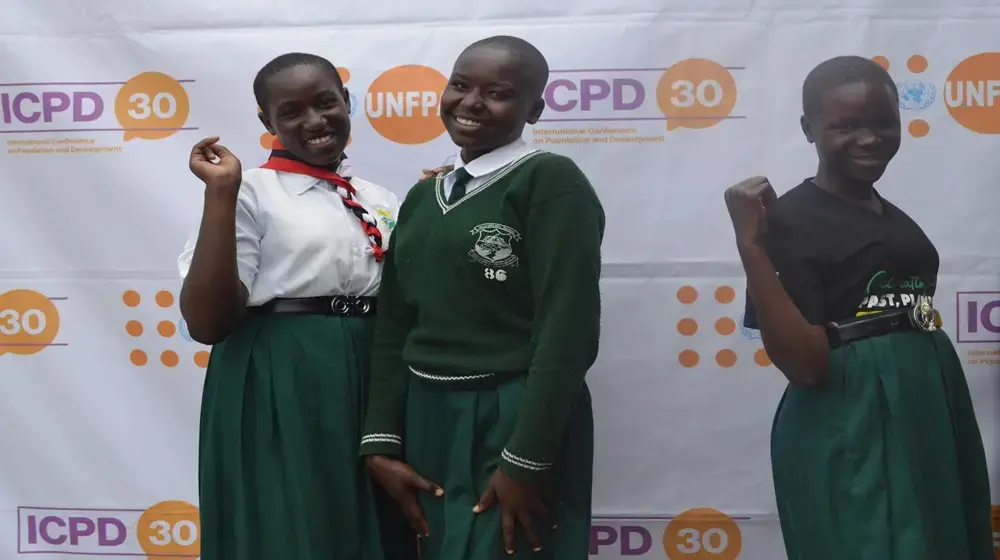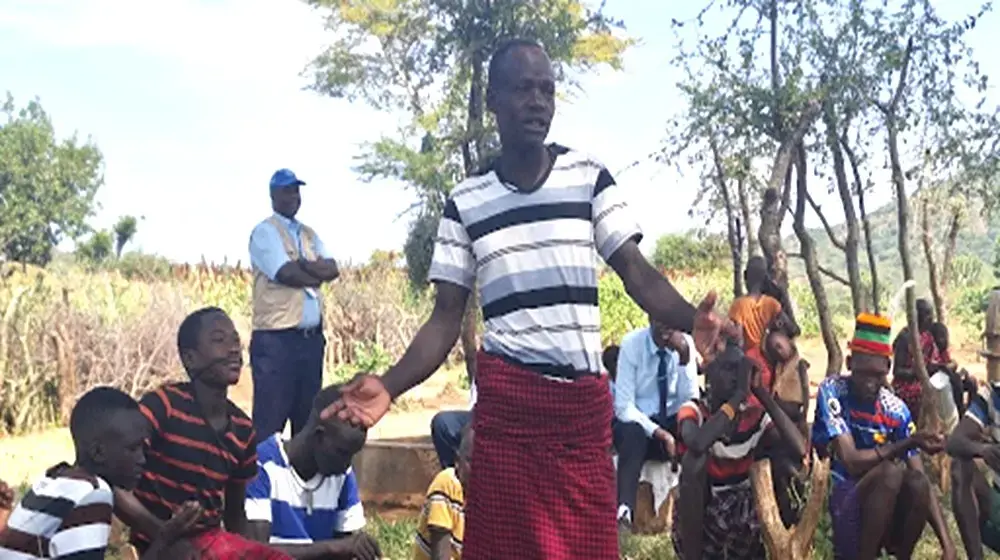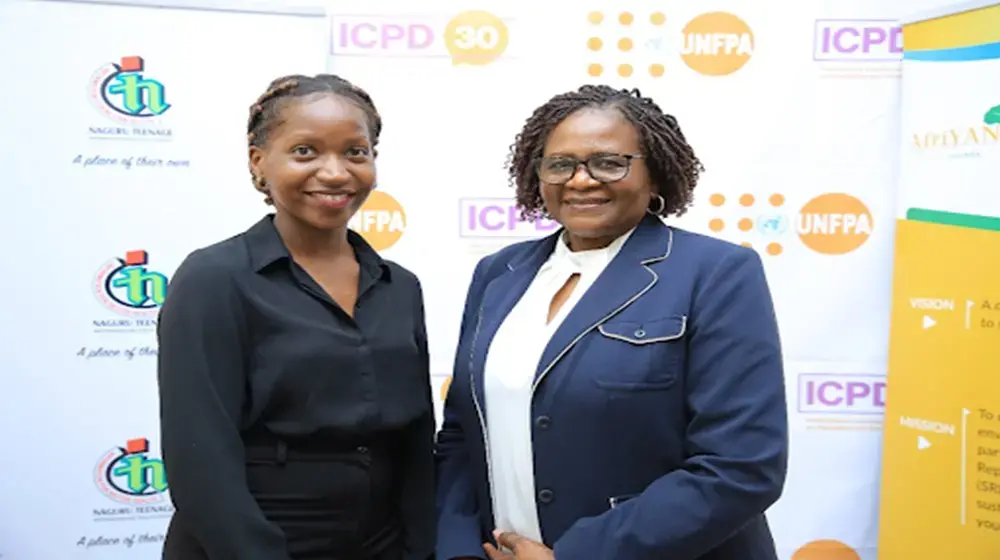Tororo district, Uganda - For many girls, teenage pregnancy is a dream killer. But not for Mary Umoni, 21, who is not about to let her dream of becoming a powerful business woman slip by.
The leader of Katek Village Empowerment and Livelihood for Adolescents (ELA) club in Mukujju Sub-county, Tororo District in Eastern Uganda, Mary got pregnant with her first baby at 17 years.
“I was in senior two at Nyendo Secondary School in Masaka district when it happened,” Mary narrates. A teacher from another school lured her into a relationship and got her pregnant. Since he was also from Tororo district, he brought her back home to become his wife.
But Mary is wasting no time. At Katek Village ELA club she is the Adolescent Rights Promoter, coordinating 30 girls, aged 12 to 19, who have received life skills and financial literacy training. The girls have been empowered to save money and start their own businesses, including retail shops, hairdressing and commercial poultry and livestock farming.
With proceeds from their small businesses, each girl contributes 2000 Shillings (about 0.50 Euros) per week. “This money is used to buy a piglet and start-up feeds that is given to one club member every week,” Mary explains. She hopes that over a period of six months, all the girls in her club will have healthy piglets and thriving businesses.
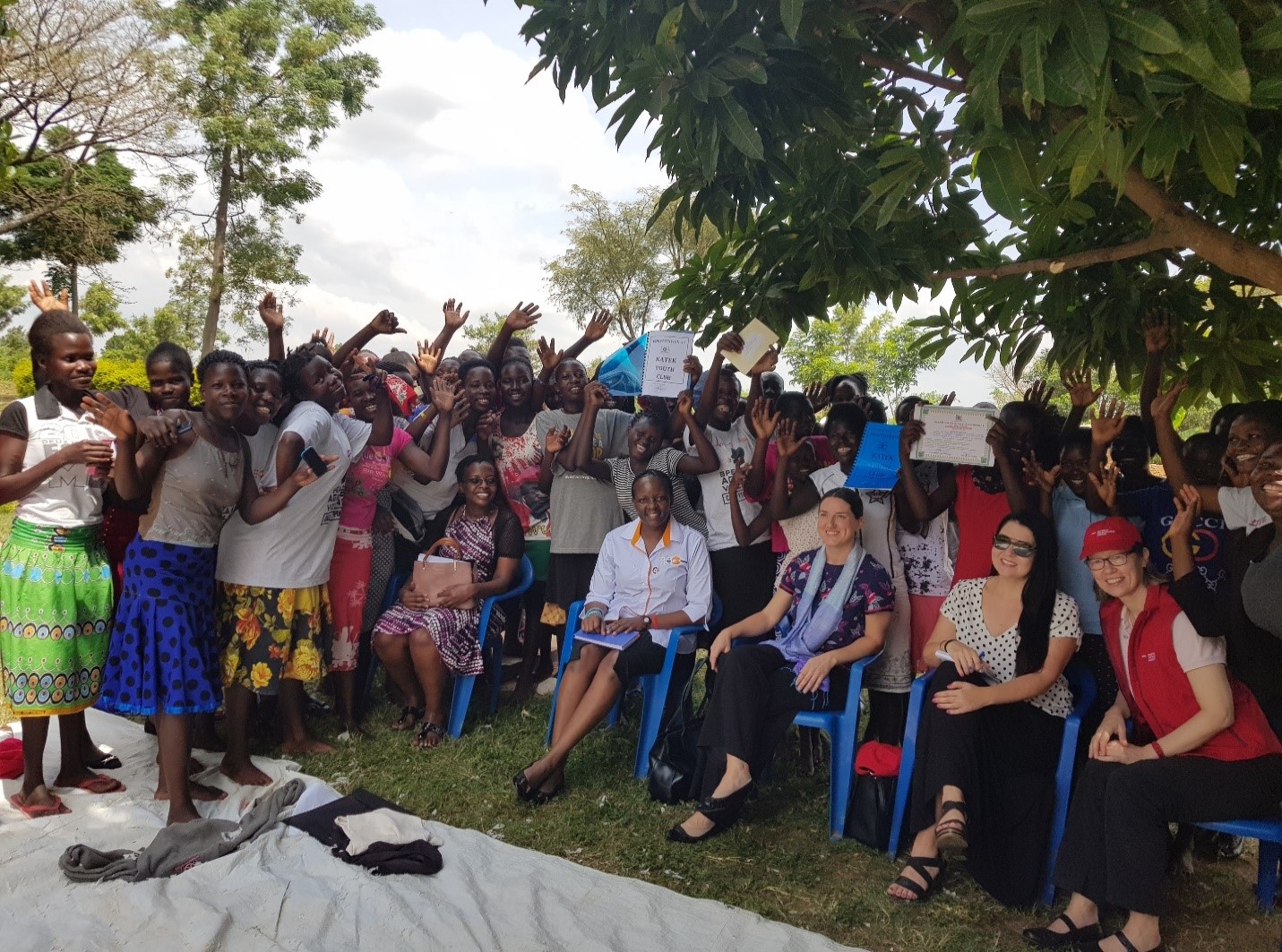
Caption
At ELA, every girl is inspired and empowered to live her dream
Katek Village is one of the 100 ELA clubs that are supported by UNFPA, with funding from the Austrian Development Cooperation (ADA). UNFPA works in partnership with BRAC Uganda to ensure that the ELA clubs are safe spaces where young girls access life skills education; financial literacy training; sexual reproductive health education; within a supportive social space that promotes gender equality and women’s empowerment, as endorsed by parents as well as local, cultural, religious and political leaders.
In case of gender-based violence, the girls are referred to a nearby health centre and the Police Child and Family Protection Unit (CFPU). For sustainability, the club has a cultural and political leader as a Patron and they receive ongoing support from the designated technical officers from the District.
The ELA club targets girls who dropped out of school due to teenage pregnancy, child marriage, or inability to afford school-fees. Katek Village club members meet daily from 2:00pm to 5:00pm to learn, share ideas, play games and encourage one another. As the Adolescent Rights Promoter, also called a Mentor, Mary facilitates the learning sessions using specific learning aids. For her to perform this role Mary was specifically trained as a facilitator by BRAC.
On a monthly basis, the parents of the club members are invited to join in what is called the Mother’s Forum. Here, the issues discussed include the kind of support they need to provide for the girls to learn and to thrive. The Mother’s Forums are conducted by the BRAC Regional Coordinator, and are open to interested fathers.
Child marriage and teenage pregnancy in Tororo district
According to the Tororo District Principal Assistant Secretary, Mr. Jackson Ekisa Osudo there are high rates of teenage pregnancy and child marriage in the district.
According to the Uganda Demographic and Health Survey (UDHS 2016), 43 percent of women between the ages of 25 and 49, were married before their 18th birthday. The teenage pregnancy rate in Tororo district is 29.5 percent, higher than the national average that stands at 25 percent of girls aged 15 – 19.
“Child marriage threatens girls’ lives and health, and it limits their future prospects,” said Mr. Alain Sibenaler, UNFPA Representative in Uganda. “Girls pressed into child marriage often become pregnant while still adolescents, increasing the risk of complications in pregnancy or childbirth.”
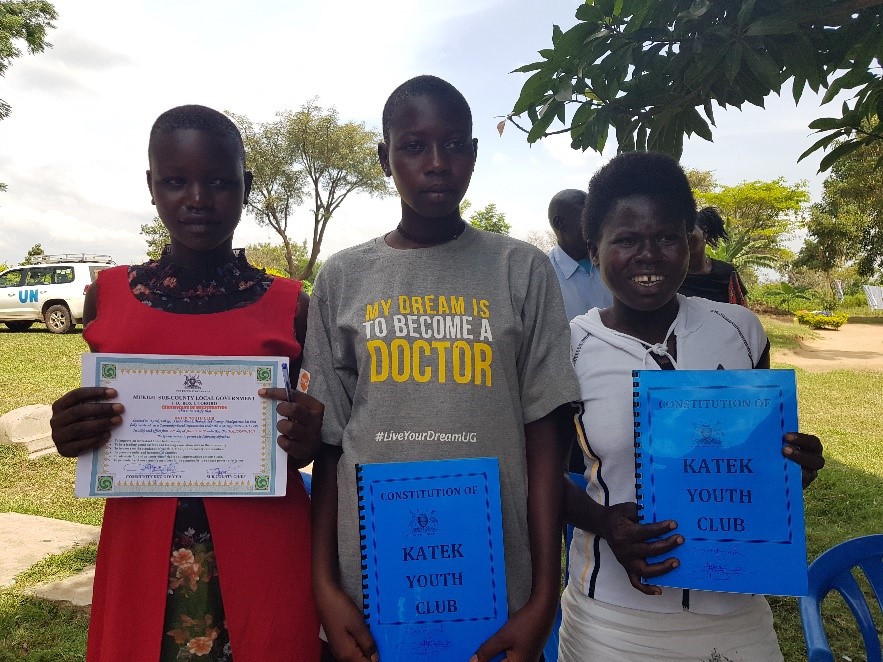
In Tororo, just like many other districts across Uganda, UNFPA works with the district local government and a wide range of partners to promote policies, programmes and legislation designed to end child marriage and teenage pregnancy.
“Tororo district has therefore passed an Ordinance to End Child Marriage. This is supported by other Ordinances to improve the quality of education and keep the girl child in school,” Mr. Osudo informed a visiting delegation from the ADA, UNFPA and UNWomen.
“It is now an offence for any child to get married in any village in Tororo,” added Mr Apollo Ogolla, the Local Council (LC1) Chairperson, Katek Village. He informed the delegation that the district leadership ensures to bring all sectors on board, including cultural and religious institutions and they have created a WhatsApp platform on GBV that is usually responsive and is helping to make follow-ups on cases of GBV in the district.
A peep into the future of Katek Village ELA Club
Using the life-skills gained, Mary mobilized members of Katek Village ELA club to register with the local authorities as a community based girls’ group. They have gone further to apply for a government subsidy, equivalent to 2,000 Euros to start a small events management business. Here, they hire out tents and chairs for use at community meetings and other ceremonies such as weddings and funerals. With regular technical support from the local leaders, BRAC and UNFPA, it is expected that this money will be put to good use and that the change in economic status for the girls will be sustained.
“In future, I see myself running a big boutique, full of clothes, shoes and bags. My dream is to become a powerful business woman,” says Mary, with a big smile, one filled with lots of hope.
- Compiled by Prossy Jonker Nakanjako and Bernadette Ssebadduka/UNFPA


